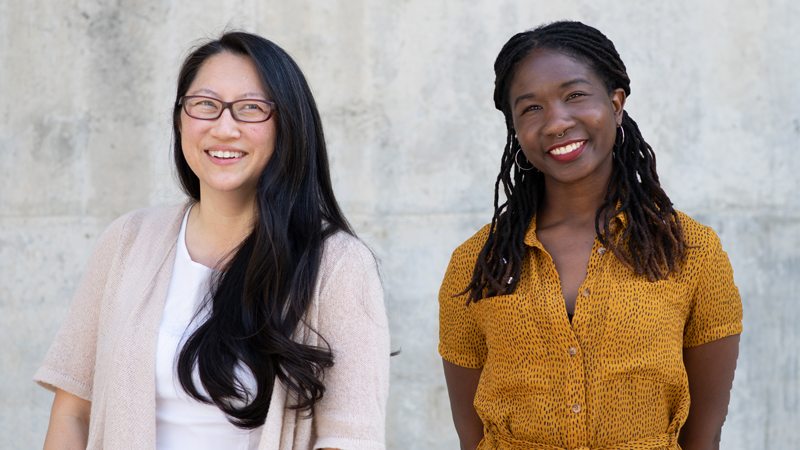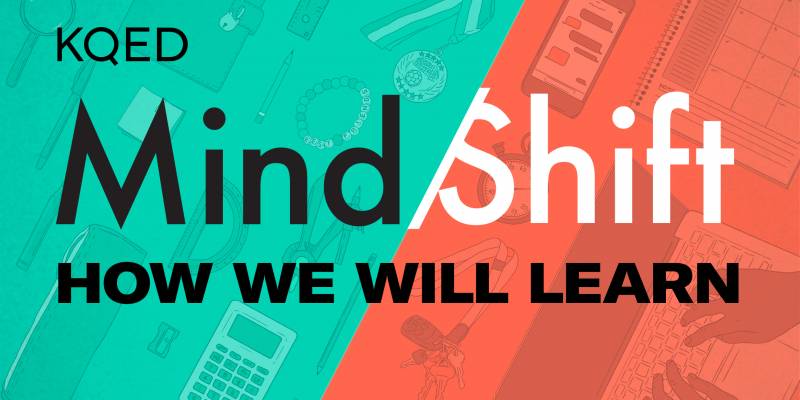The new season of MindShift starts Tuesday, July 20, with new episodes available every other Tuesday through September 28. Find the MindShift podcast for free on Apple Podcasts, NPR One, Spotify or wherever you get your podcasts, or visit kqed.org/mindshiftpodcast.
Season 6 Schedule
Episode 1: July 20, 2021
Grades Have Huge Impact, But Are They Effective?
By fall 2020, high school students in districts around the country were failing classes at greater rates than before the pandemic. Teachers are asking: Is it time to reevaluate how we grade? Learn common misconceptions about grades and possible new directions.
Episode 2: August 3, 2021
Down With Toxic Positivity!
The pandemic has pushed many educators to their limits. And yet, some teachers are being told a better attitude could make their jobs easier. Some call this ‘toxic positivity’, which is when you focus on the positive and ignore the negative. In this episode, we look at the debate over toxic positivity and whether classrooms should clear of it.
Episode 3: August 17, 2021
Could Data Science Diversify STEM?
There’s a growing movement to teach data science in schools. Some experts hope it will discourage the number of dropouts in math classes and lead to more diversity in STEM fields. In this episode, we study how educators have designed the classes to be more engaging for women and people from groups underrepresented in STEM fields.
Episode 4: August 31, 2021
Supporting Student Mental Health Needs
As we know, many students’ mental health suffered profoundly during the pandemic. But there are bright spots. One San Francisco Bay Area school was able to meet most students' mental health needs – and it didn’t call for anything too drastic.
Episode 5: September 14, 2021
How Do You Cultivate Genius In All Students?
Gholdy Muhammad, a teacher and professor at Georgia State University, spent years researching Black literary societies of the early 1800s, where people debated ideas, cultivated a deeper understanding of themselves and thought critically about change needed in the world. From this model, Muhammad developed a historically responsive literacy framework to help teachers and parents raise the geniuses of tomorrow.
Episode 6: September 28, 2021
A Framework for Conversations about Race in Schools
Glenn Singleton is the author of Courageous Conversations About Race, which gives helpful ground rules when talking about race. One Florida School district taught Singleton’s techniques to all their educators so they could develop cultural competency and address systemic inequities. Could that school district serve as a model for others?
Mini-Episodes | Monthly Starting in October | Interviews with Leaders in Education
To better serve listeners between seasons, MindShift will release mini-episodes monthly. These will be roughly 10 minute, conversation-styled episodes where one of the MindShift hosts interviews an education researcher or notable teacher. The goal is to be able to respond to news events that happen in the world of education, learning and teaching as they happen. The first example of this was dropped pre-season on May 11, 2021 with the author of Stamped (For Kids): Racism, Antiracism, and You, Dr. Sonja Cherry-Paul.
About the Hosts
Ki Sung
Ki Sung is the senior editor of MindShift. Prior to joining MindShift in 2014, she was a digital news trainer at NPR, where she gained valuable lessons about how people learn and what supports need to be in place to implement change. She balances life by cooking at home, writing fiction and sculpting at Core Power Yoga.
Nimah Gobir
Nimah Gobir is a writer and producer for MindShift. She studied Arts in Education at Harvard Graduate School of Education where she also worked as a researcher with Project Zero. Since then, she has worked with young learners in many capacities including teacher, curriculum developer and youth media producer. Each role offered a window into the different ways caregivers and educators strive to meet children’s needs and promote meaningful learning experiences in and out of the classroom. Nimah is committed to exploring stories about how to make learning more equitable, accessible and magical for all students.
About MindShift
MindShift explores the future of learning in all its dimensions via its blog, email newsletter, social media accounts and podcast series. It examines how learning is being impacted by technology, discoveries about how the brain works, poverty and inequities, social and emotional practices, assessments, digital games and design thinking and music, among many other topics. We look at how learning is evolving in the classroom and beyond. We also revisit old ideas that have come full circle in the era of the overscheduled child, such as unschooling, tinkering, playing in the woods, mindfulness, inquiry-based learning and student motivation. We report on shifts in how educators practice their craft as they apply innovative ideas to help students learn, while meeting the rigorous demands of their standards and curriculum. MindShift has a unique audience of educators, tinkerers, policy makers and life-long learners who engage in meaningful dialogue with one another on our platforms
Visit us at kqed.org/mindshift and follow us on Twitter at twitter.com/MindShiftKQED and on Facebook at facebook.com/MindShift.KQED
About KQED
KQED serves the people of Northern California with a public-supported alternative to commercial media. An NPR and PBS affiliate based in San Francisco, KQED is home to one of the most listened-to public radio stations in the nation, one of the highest-rated public television services and an award-winning education program helping students and educators thrive in 21st-century classrooms. A trusted news source and leader and innovator in interactive technology, KQED takes people of all ages on journeys of exploration — exposing them to new people, places and ideas. www.kqed.org

